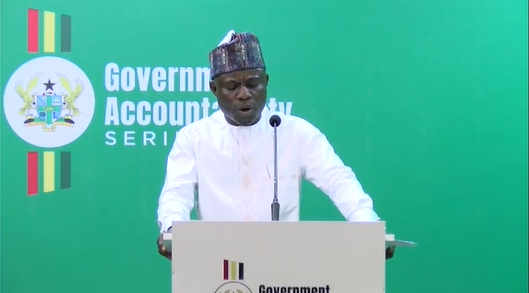Health ministers from 47 African countries will meet in Lusaka, Zambia, from 25 to 27 August 2025 for the Seventy-fifth Session of the World Health Organisation (WHO) Regional Committee for Africa.
The gathering will take place at the Mulungushi International Conference Centre, Kenneth Kaunda Wing, in Lusaka.
The Regional Committee is the WHO’s highest decision-making body in Africa, responsible for setting priorities, shaping policies, and guiding investments to improve health across the continent.
More than 500 delegates are expected at the meeting, including WHO Director-General Dr. Tedros Adhanom Ghebreyesus, WHO Regional Director for Africa Dr. Mohamed Janabi, ministers of health, senior government officials, representatives of UN agencies, civil society organisations, and development partners.
Ahead of the meeting, WHO and the Government of Zambia will host a five-kilometre “Walk the Talk” event to promote physical activity and healthy living.
The opening session on 25 August will feature remarks from President Hakainde Hichilema of Zambia, Dr Tedros Adhanom Ghebreyesus, WHO Director-General and Dr Mohamed Janabi, WHO Regional Director for Africa.
Discussions over the three days are expected to focus on strengthening health systems, preparing for public health emergencies, and advancing universal health coverage in the African region.
Ministers will deliberate on a proposed Regional Framework for Accelerating Implementation of the Global Oral Health Action Plan. This new roadmap, aligned with the 2023–2030 global plan, seeks to integrate oral health into primary care, strengthen workforce innovation, improve research and surveillance, and ensure that essential oral health services are accessible to all by 2030.
The framework sets clear targets: by 2030, at least 50% of each country’s population should have access to essential oral health services, and the prevalence of major oral diseases should be reduced by 10%.
By 2028, 60% of countries are expected to have national oral health policies in place, supported by dedicated budgets and staff.
Another major focus will be on blood transfusion, which is critical for life-saving healthcare, especially for vulnerable populations.
Countries in the WHO African Region continue to face significant challenges in guaranteeing adequate and equitable access to safe, quality-assured blood and blood products. Currently, more than 50% of blood needs remain unmet in the Region, with severe health consequences.
To address this, the meeting will endorse the Framework to Advance Universal Access to Safe, Effective and Quality-Assured Blood Products in the WHO African Region (2026–2030).
The strategy is designed to strengthen every part of the blood supply chain from modernizing laboratories and storage facilities to training health workers and mobilizing more voluntary blood donors.
Between 2000 and 2023, Africa recorded progress in reducing maternal and child deaths. Yet the numbers remain alarming: the continent still accounts for 70% of global maternal deaths and more than half of all under-five deaths. Weak health systems, high costs, workforce shortages, and the growing impacts of conflict, emergencies, and climate change continue to limit access to lifesaving care.
The health ministers will focus on a new plan to transform health systems for women, children, and adolescents. The roadmap, titled Accelerating Progress in the Health and Well-being of Women, Children and Adolescents by Transforming Health Systems in the African Region, calls for greater investment in health workers, stronger primary care, and targeted action to close the deep inequalities that keep services out of reach.
Malaria remains another pressing challenge. The region bears the world’s heaviest burden, with 95% of global malaria deaths and 94% of cases recorded in 2023.
Progress in malaria control has slowed: between 2015 and 2023, incidence dropped by just 5% and deaths by 16%, well short of targets.
Ministers are expected to explore strategies to strengthen health systems, expand community-based treatment, fight drug and insecticide resistance, and secure more domestic and global funding.
Workforce shortages also threaten health goals. In Africa, there are only 1.55 health workers per 1,000 people, far below the global benchmark of 4.45. The shortage stretches primary health care, weakens emergency preparedness, and leaves rural and underserved communities most at risk.
Ministers will consider a strategy to train and retain more health professionals, improve their distribution, and harness digital tools to deliver remote care. Initiatives such as AVoHC-SURGE, which deploys rapid emergency teams from WHO AFRO and the Africa CDC, are seen as critical to improving crisis response.
Health security will also dominate the agenda. In 2024 alone, African countries responded to 251 public health events, ranging from deadly disease outbreaks to climate-driven disasters, affecting more than 40 million people. Each crisis further tested fragile systems already struggling with limited resources.
Ministers will review new proposals to enhance Africa’s health security, strengthening event detection, building resilient systems, and forging stronger partnerships. Quick detection and rapid response, experts warn, will determine whether future outbreaks remain local incidents or escalate into crises that put millions at risk.



